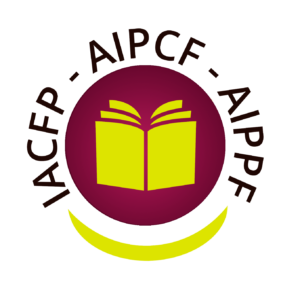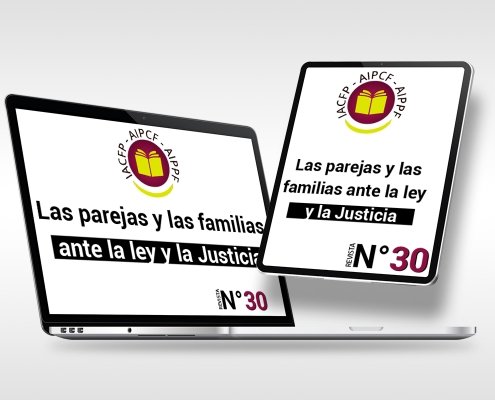REVISTA N° 30 | AÑO 2024 / 1
Anatomie d’une chute – Truth and guilt in the story of a couple
CLÍNICA CINEMATOGRÁFICA
Anatomie d’une chute[1] – Truth and guilt in the story of a couple
Margherita Rossi[*]
Is it possible to know what really happens in a relationship, to reconstruct the truth assuming to fully grasp the reasons, responsibilities and causalities of the events that occurred, of the choices made, the break-ups?
Anatomie d’une chute (Anatomy of a Fall), the film by French director Justine Triet, released in 2023, and winner of many prizes including the Golden Palm at Cannes 2023, Best Foreign Film at the Golden Globes and the David di Donatello 2024, subtly and dramatically questions us on the complex issue of the relationship between objective and subjective truth, between responsibility and guilt within relationships. These questions are posed starting from the death of one member of a couple, a very concrete fact, which nevertheless challenges our capacity for judgement.
A year ago, Sandra and Samuel moved from the city to a remote mountain resort on the outskirts of Grenoble, together with their eleven-year-old son, Daniel, who is visually impaired. The film begins with a dialogue between Sandra, a well-known writer of German origin, and a young student who is interviewing her, when suddenly from another room the sounds of very loud, provocative rap music[2] heard by Samuel, burst in and disturb the conversation between the two, forcing them to interrupt the interview. There is a subtle tension, and shortly afterwards Samuel is found dead at the foot of the house: he has fallen down from the balcony. The cause of death is uncertain, is it an accident, a suicide or a murder? Sandra becomes a suspect and the film unfolds from here onwards in the reconstruction of the court case. As there is no certain evidence, it turns into a sort of a trial of the couple’s bond which tries to bring to light its state of health, its conflicts, as well as the dynamics that may have caused the fall.
Clues are brought into the courtroom that add elements, but paradoxically do not help to unravel the skein of tangles and, on the contrary, open up glimpses of the initial presentation of an healthy couple. More and more doubts arise, to generating in the spectator a sense of disorientation.
Sandra is a self-confident, independent woman, successful in her work as a writer and translator. Samuel, also a writer, has decided to devote more time to his son after the move, also to follow him in his studies, complicated by his disability. However, when we discover that the son has lost his eyesight following an accident caused by his father, a shadow of guilt and resentment falls over the whole story, disclosing deeper dynamics of the bond between Sandra and Samuel. This could explain the homicidal gesture, as a consequence of a grudge that Sandra in court does not want to acknowledge, but which she might hold at an unconscious level. It could be the source of an encapsulated hatred as the one Lucia Fattori (2020) talks about in the article “Unconscious resentment and melancholic depression”: a feeling that remains at an unconscious level and therefore cannot be transformed. But this could be also a sense of guilt that is impossible to process, the one of having damaged one’s own child forever, that could explain the suicidal gesture. Other elements appear in support of this version, linked to a possible depression of Samuel who, at a standstill on a writing project, had sought the help of psychotherapy and also pharmacological support. The key evidence should be the listening in court of an audio-recording, secretly made by Samuel, of a violent argument that took place between the two, in which he accuses her of betrayal and above all of having stolen his idea for her book.
The scene, the crux of the whole film, which for the spectators is enriched by the images, is that of a confrontation between the two in which significant aspects of the quality of the couple’s bond emerge. This is how Sandra addresses Samuel at the climax of the quarrel: “You are not a victim at all! Your generosity conceals something dirty and meaner. You are incapable of facing your ambitions, and you resent me for it, but I am not the one who put you where you are, I have nothing to do with it! You are not sacrificing yourself, as you say. You choose to sit on the sidelines, because you are afraid, because your pride makes your head explode before you can even come up with the little germ of an idea! Now you wake up that you are 40, and you need someone to blame, but you are the one to blame. You are petrified by your own fucking standards, and your fear of failure. This is the truth!”
What is at stake here is not only the negotiation between the individual and the couple’s space, but also the attribution of responsibility for one’s own successes and failures, the power of one over the other and the rivalries. It is an attempt to establish, in a sort of polarisation, who among the two has been able to appropriate the creative and maturational elements and who the destructive and mortiferous ones. And how, in the aggressive game of projections, one attempts to deposit in the other aspects of one’s self that are denied because they are too painful.
Also significant is Sandra’s reference to the issue of the three languages spoken in the family: she is German, he is French, at home they speak English even with the child, but the language of the outside environment is French, to which Sandra is also forced to adapt. This too becomes a metaphor for the difficulty of understanding each other and shows how, in the construction of a new bond, the loss of one’s original identity can be experienced.
By observing throughout the film not the events as they happen, but their reconstruction, we are thrown into confusion and confronted with our own stereotypes relating to the poles victim-aggressor, male-female, mother-father, strong-weak, as well as with our need to define roles and tasks in the couple and family. And finally we experience the uncanny feeling of needing to identify a culprit and being unable to do so. Not even the faithful recording of that event is rid of possible contrasting interpretations and doesn’t give the right to establish the truth: rather, its quality is that of a recollection, a sort of rewriting, through the eyes of the subject, of the lived experience.
In the end, it will be the son Daniel who is called to court to settle the matter. In order to overcome the doubts, in the absence of a lacking the sensory visual experience, he will have to “decide to believe”. To confirm that truth is defined as a choice, a stance with respect to the subjective experience of reality. As a blind witness, like a new Tiresias, he is called upon establishing who, if his father or his mother, is right, a decision which is as impossible as vital. He represents a third element that opens up the couple and articulates it in the family ties of a skew Oedipal triangle, which, however, does not survive and deteriorates in the most classic of tragedies: DanielOedipus blinded, son of a murdered father, is thus reunited with his mother without whom survival would be denied. And a further hypothesis creeps into our mind: the doubt of patricide, which from being only an unconscious fantasy would become reality.
But from whichever angle one looks at this affair, it emerges that what couldn’t survive is the possibility that the couple’s bond evolves and includes the third. We could also see this as that creative third area of which Winnicott (1971) speaks, the intermediate area that is constituted as a «resting-place for the individual engaged in the perpetual human task of keeping internal and external reality separate and yet related»3. This is the maturational task which this couple, maybe built on a twin mirroring bond, has not been able to accomplish, in the impossibility of generating a space in which the single individual’s needs can coexist with the more complex family needs, where new roles, new functions are organised, and where meaning is given to external and internal events, when the passage of time imposes new processes and modulation capacities.
Sandra in the courtroom says: “Sometimes in the couple it is chaos. Everyone feels lost, sometimes we battle together, sometimes alone. Sometimes we fight, it happens”. Of course, it happens. But the question is then: what chance does the couple have of taking charge of the chaos, handling it, giving it a shape, a meaning and transforming it? We can then hypothesise that in this story the fall becomes a metaphor for the failure of that third pole represented by the son, but also by the couple’s bond itself, in its function as an intermediate and creative area. What fails is a psychic function that thinks and worries, that takes care of the elements of fragility and dependence, and is capable of weaving a supportive network, that cushions falls and psychic pain, attributing meaning to events, favouring evolution and vital transformation.
basé sur le film de Justine Triet
Margherita Rossi
https://doi.org/10.69093/AIPCF.2024.30.09
Bibliography
Fattori, L. (220). Rancore inconscio e depressione melanconica, Rivista di Psicoanalisi, LXVI, 2, 2020. DOI10.26364/RPSA20200660339
Winnicott, D.W. (1971). Playing and reality. London: Tavistock Publications.
[*] Clinical psychologist, psychotherapist. margiros@gmail.com
[1] Justine Triet, Anatomy of a Fall, Production : Les Films Pelléas, les Films de Pierre, 2023.
[2] The song is “50 cent” di P.I.M.P ft Soop Dog

